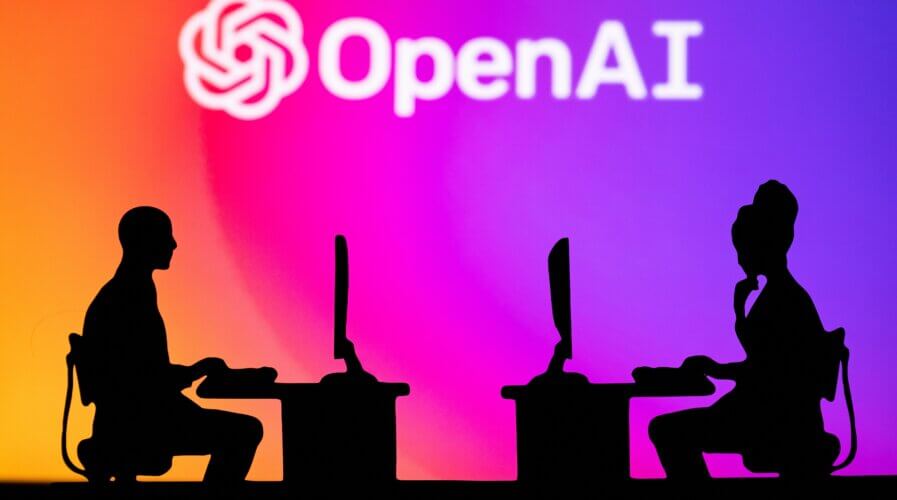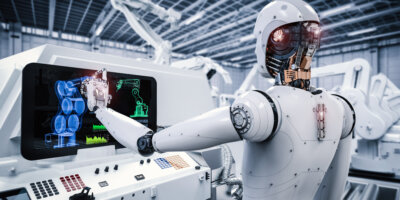
Revolutionizing job market with AI integration
|
Getting your Trinity Audio player ready... |
Article written by Chong Theng Hui, Chief Technology Officer at Hiredly
There has been a lot of talk about the rise of artificial intelligence (AI), the extent of its capabilities, and whether or not its use will end up making certain jobs obsolete. But let’s be honest; people were voicing similar concerns when digitalization and automation were on the rise.
The new chapter of AI has now begun. It is important to note that we are going through a transition between Narrow AI and General AI. In simple terms, Narrow AI is designed to perform a single task that will not be automatically applied to other related tasks, like language translation. Meanwhile, General AI is meant to mimic complex thought processes and can perform any intellectual task that a human being can do, like having intuitive conversations.
The recently released ChatGPT falls in the latter category, as it is a large language model AI that is able to converse with its users, answer follow-up questions, and even challenge incorrect assumptions. In fact, it can even write up a whole 2-page article without breaking a sweat, literally. Now, this is when things start to heat up.
Leveraging General AI could tremendously improve or even increase the productivity rate of a business from any industry, which could ultimately affect the business revenues in a positive way.
Tech companies adopting data & AI in the job market

Chong Theng Hui, Chief Technology Officer at Hiredly
Earlier this month, Hiredly’s Founder and CEO announced that Hiredly is already in the process of integrating ChatGPT with the company’s job platform (Hiredly.com) and its recruitment service (Hiredly X). Being a tech-driven company, it’s just natural for Hiredly to leverage this software to increase process efficiency. As the Chief Technology Officer, I too welcome the move to embed this technology into the company’s products and services.
Ashley, which is our centralized intelligence agent, is fully connected to our data lake and multimodal AI models, which include but are not limited to ChatGPT. For example, the Ashley integration will allow our platform to automate the process of reviewing CVs and resumés from applicants and even list down job vacancy posts more accurately to make sure that the applicant knows exactly what the job entails. Moreover, the application will allow us to enhance our humanized intelligent features and recommendation algorithms, allowing us to do what we do best: Helping people get hired for the right jobs at the right companies.
It is important to note here that the role of Ashley in Hiredly’s system will enable more comprehensive search results for both job seekers and potential employers. This can help change the perception of job hunting being a ‘chore’ or a ‘tedious task’, and it may even reduce the timeframe of a candidate being accepted for a position they applied for.
But Hiredly is not the only company that sees the potential that AI enablers like ChatGPT can bring to simplify operations. We can see an increasing number of tech companies ramping up their efforts to accelerate the integration of generative AI into their offerings. Not that these companies are taking human employment for granted, but why wouldn’t you want to make things easier for yourself as a business leader and for your employees?
According to a report by McKinsey & Company, it suggests that at least 30% of tasks in 60% of jobs could currently be automated. By leveraging AI technology to take those potentially-automated tasks off the hands of the employees, they will be able to perform other tasks more efficiently.
For example, tedious and repetitive tasks such as scheduling, expense management, and filling forms can be ‘delegated’ to the AI to save time and reduce the burden on the employees. More time can be spent being productive when people have the information they need to excel at their jobs, and employers can better track that progress for meaningful performance reviews.
AI as a service, to win the future
As I mentioned before, for the better part of a decade ago, people were worried about how digitalization and automation would end up causing a large number of workers to lose their jobs, which is their main source of income. In the end, that was hardly the case.
Employers went the extra mile to send their workers to job courses to upskill them so that they could put more focus on more humanized tasks, such as decision-making, problem-solving, critical thinking, and the like. Even futuristic robots need skilled mechanics on standby in case of a malfunction.
This is why more companies are beginning to integrate AI technology into more standardized operations of their businesses, allowing it to handle basic commands and responses to engage with customers and freeing the time of the service reps up to handle more complex situations. At Hiredly, we combine both online and offline data to enhance our AI multimodal model (called Ashley), which will be integrated into our upcoming products and services. Although I do believe that we will be able to witness further technological advancements in the AI scene, for now, AIs are helpers, not replacers.
With that thought, I do not believe that the adoption of advanced AI will threaten the job market, but it definitely has positively disrupted and is changing the work landscape. If anything, it can provide backup for the employees when they are overwhelmed or if a company is understaffed. That way, instead of replacing the workers, AI can further enhance their working experience.
Artificial intelligence can provide predictive analytics to give employees perspective, allowing for better and faster decisions by generating new insights for them. So while there is still a lot of debate over how well computers will ever be able to accurately imitate a genuine response in conversations or how well an article can be written without sounding too ‘robotic’, I think it’s safe to say that everyone can stop worrying about displacement and only focus on the benefits of disruptive technology. As we approach a world where AI technology can be made available as a service, it is the companies who own proprietary data to integrate such technology that will win in the future.
The views in the article are those of the author and may not reflect the views of this publication.
READ MORE
- Safer Automation: How Sophic and Firmus Succeeded in Malaysia with MDEC’s Support
- Privilege granted, not gained: Intelligent authorization for enhanced infrastructure productivity
- Low-Code produces the Proof-of-Possibilities
- New Wearables Enable Staff to Work Faster and Safer
- Experts weigh in on Oracle’s departure from adland


